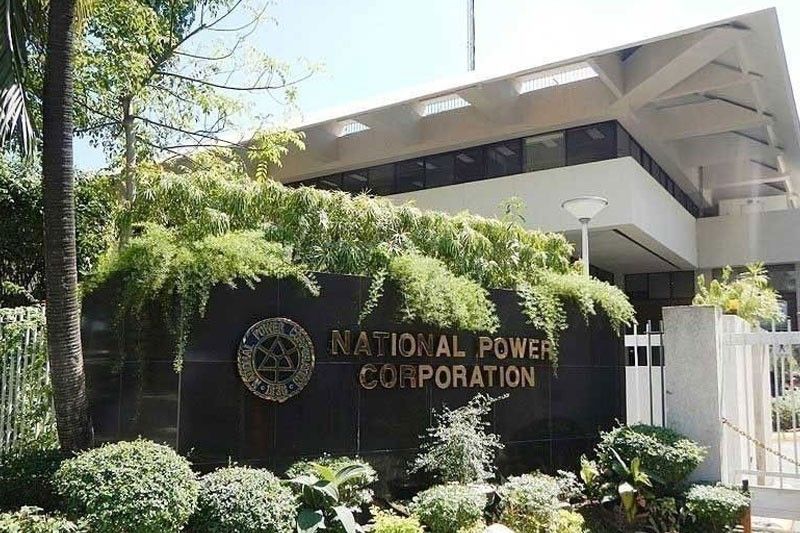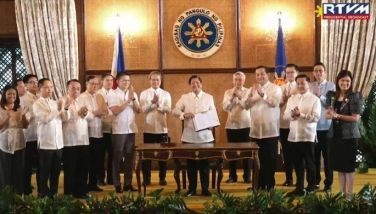Napocor in talks with major local developers, foreign firms

MANILA, Philippines — State-run National Power Corp. (Napocor) is in talks with major local energy developers and foreign firms to boost its bid to transition the operations of off-grid areas in the country to clean energy.
Napocor president and CEO Fernando Martin Roxas said they have talked to 18 developers to support their hybridization program.
“Majority, maybe 90 percent of them, are local companies. But we’re talking about the biggest, such as DMCI, Ayala, and Alternergy, among others,” Roxas said.
“Out of the 18 developers, only two said they are not interested. And the reason is they have a lot on their plates. They have bigger projects that they want to focus into or their resources to be focused on,” he said.
Roxas said Napocor is also in discussions with German and Swedish firms for renewable energy technologies, as well as Indonesian and Malaysian companies for biofuels.
“We are exploring a lot of technologies to replace diesel,” he said.
The country’s off-grid islands are powered mostly by diesel plants through the Napocor Small Power Utilities Group (SPUG), with only about two percent of their operations powered by renewable energy.
Roxas is targeting to convert all SPUG areas to 100 percent renewable energy operations before 2030.
“I am looking at by the time this administration steps down by 2028, hopefully, 100 percent renewable energy,” Roxas said.
“Our plan is to hybridize the first 25 percent, because the current prices of electricity in the regions, it is not yet enough for us to remove the diesel units. What we can do is to reduce it. So we’re looking to convert the first 25 percent into renewables then later on, once we achieve the first 25 percent, my plan is to convert the remaining 75 percent using biofuels,” he said.
Napocor, as mandated by the Electric Power Industry Reform Act of 2001, is tasked to perform missionary electrification in the farthest communities and islands not connected to the main grid.
It is in this capacity that the corporation operates 281 SPUG plants in 189 municipalities across 35 provinces in the country.
Last week, Napocor signed a partnership with the German-Philippine Chamber of Commerce and Industry to embark on a feasibility study on green hydrogen and fuel cell technologies in off-grid areas of the country.
“I am extending the invitation to the private sector. We are embarking on a very aggressive hybridization project. We’re inviting the private sector and put up renewable energy facilities with some form of battery energy storage system,” Roxas said.
Napocor has been working on its long-term sustainability plan to mitigate the impact of high fuel prices on its operations.
Last March, it announced that it would cease from acquiring diesel generating sets in line with its push for sustainability through renewable energy.
The move is expected to minimize the losses incurred from rising fuel costs and eventually make Napocor’s operations more sustainable.
“Now, NPC is losing about P1 billion a month because of the price of diesel. Our rates were designed to recover at P35 per liter of diesel, but it has gone up to about P70 per liter so our losses have increased,” Roxas said.
After securing P5 billion early this year, Napocor is currently looking to tap a fresh credit facility amounting to P10 billion from the Land Bank of the Philippines to ensure the continued delivery of power supply in off-grid areas.
“We are just waiting for Monetary Board approval and sovereign guarantee from Malacanang,” Roxas said.
“Our forecast is that it should cover partly the requirement for fuel for first quarter of next year. Hopefully, prices will significantly drop so that we won’t have to borrow anymore,” he said.
The Department of Energy had earlier pushed for Napocor to have access to credit lines of banks.
DOJ, in an opinion in September last year, indicated that Napocor is allowed to draw on funding sources other than the universal charge for missionary electrification to fulfill its mandate of energizing the areas in the country that are not connected to the main grid and ensure a stable and reliable power supply in these areas.
The DOJ opinion stated that Napocor has the legal authority to borrow funds or contract loans to fulfill its missionary electrification function in the off-grid areas pursuant to its charter and the mandate established under Section 70 of Republic Act No. 9136 or the Electric Power Industry Reform Act of 2001.
The favorable opinion, thus, allows Napocor to establish a credit line with local banks, allowing the agency to manage the fuel price increase that has significantly affected Napocor’s financial position.
- Latest
- Trending


























